
Internet
14:25, 23-Nov-2017
What you need to know about the net neutrality debate in the US
CGTN
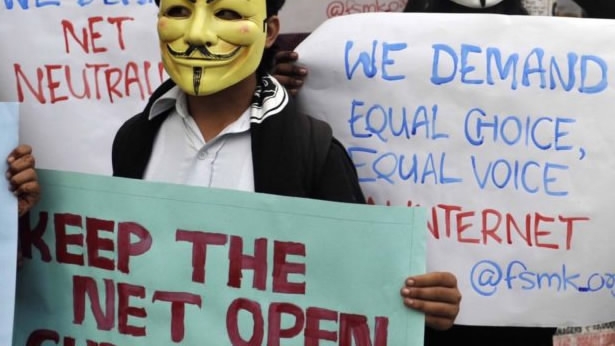
US "net neutrality" regulations, designed to prevent Internet service providers like Verizon, AT&T, Comcast and Charter from favoring some sites and apps over others, are on the chopping block.
Federal Communications Commission (FCC) Chairman Ajit Pai, on Tuesday unveiled a plan to undo the Obama-era rules that have been in place since 2015.
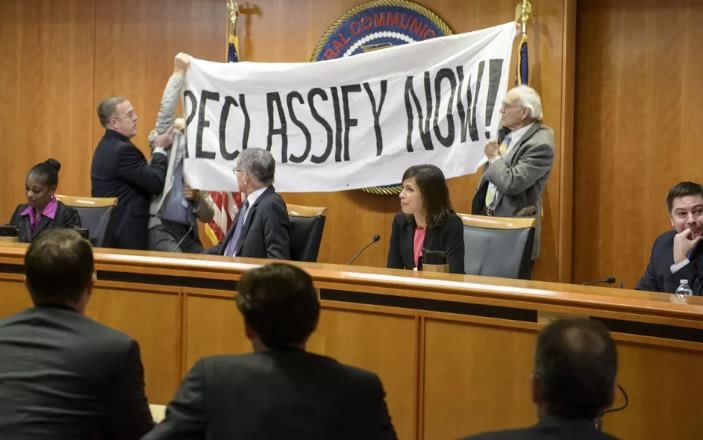
Protesters interrupted a meeting of the FCC commissioners./AFP Photo
Protesters interrupted a meeting of the FCC commissioners./AFP Photo
What is net neutrality?
Net neutrality is the principle that Internet providers treat all web traffic equally, and it’s pretty much how the Internet has worked since its creation. But regulators, consumer advocates and Internet companies were concerned about what broadband companies could do with their power as the pathway to the Internet – blocking or slowing down apps that rival their own services, for example.
What did the government do about it?
The FCC in 2015 approved rules, on a party-line vote, that made sure cable and phone companies don’t manipulate traffic. With them in place, a provider such as Comcast can’t charge Netflix for a faster path to its customers, or block it or slow it down.
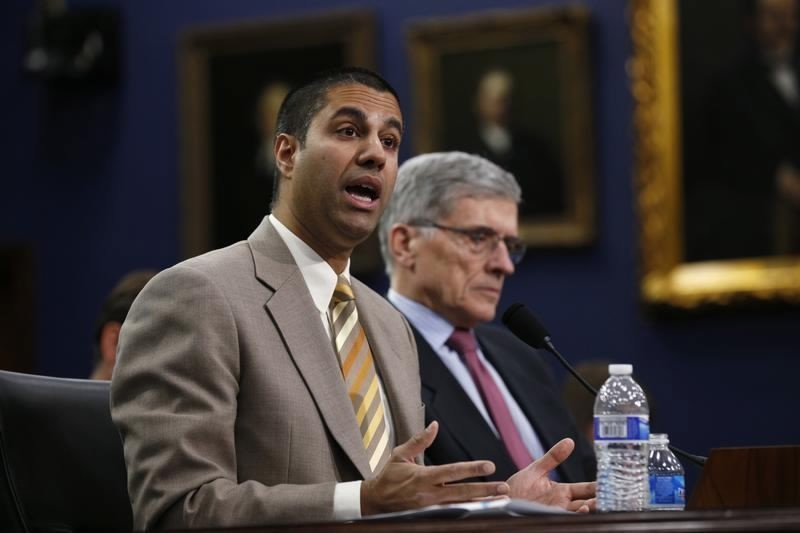
Federal Communications Commission (FCC) Commissioner Ajit Pai (L) and FCC Chairman Tom Wheeler(R)./Reuters Photo
Federal Communications Commission (FCC) Commissioner Ajit Pai (L) and FCC Chairman Tom Wheeler(R)./Reuters Photo
The net neutrality rules gave the FCC power to go after companies for business practices that weren’t explicitly banned as well. For example, the Obama FCC said that "zero rating" practices by AT&T violated net neutrality. The telecom giant exempted its own video app from cellphone data caps, which would save some consumers money, and said video rivals could pay for the same treatment. Pai’s FCC spiked the effort to go after AT&T, even before it began rolling out a plan to undo the net neutrality rules entirely.
A federal appeals court upheld the rules in 2016 after broadband providers sued.
What telecoms want?
Big telecom companies say they don’t want the stricter regulation that comes with the net neutrality rules. They say the regulations can undermine investment in broadband and introduced uncertainty about what were acceptable business practices. There were concerns about potential price regulation, even though the FCC had said it won’t set prices for consumer Internet service.
What Silicon Valley wants
Internet companies such as Google have strongly backed net neutrality, but many tech firms have been more muted in their activism this year. Netflix, which had been vocal in support of the rules in 2015, said in January that weaker net neutrality wouldn’t hurt it because it’s now too popular with users for broadband providers to interfere.
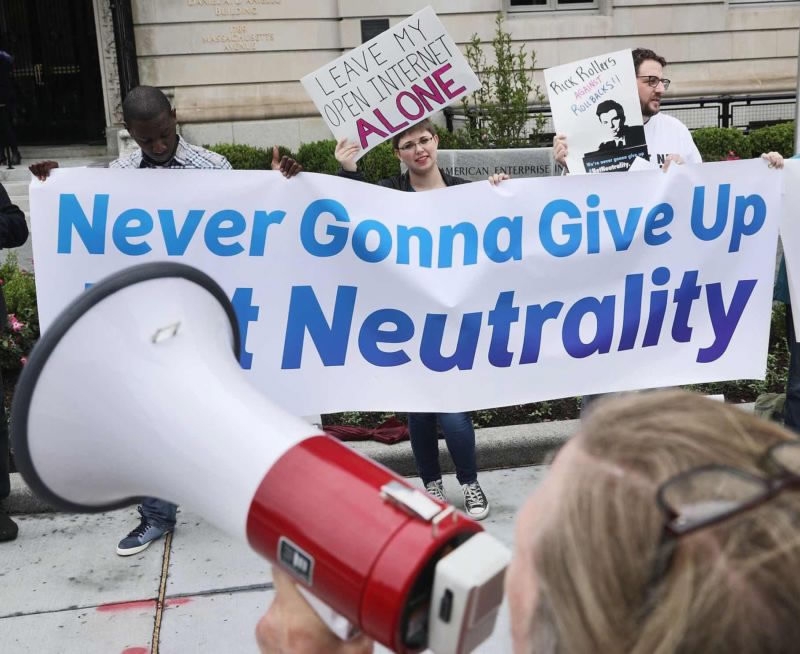
Protestors object to FCC Chairman Ajit Pai's plan to eliminate net neutrality rules./AFP Photo
Protestors object to FCC Chairman Ajit Pai's plan to eliminate net neutrality rules./AFP Photo
What comes next?
Pai distributed his alternative plan to other FCC commissioners Tuesday in preparation for a Dec. 14 vote. Although the FCC’s two Democrats said they will oppose the proposal, the repeal is likely to prevail as Republicans dominate 3-2. The vote for net neutrality in 2015 was also along party lines, but Democrats dominated then.
In the long run, net-neutrality advocates say undoing these rules makes it harder for the government to crack down on Internet providers who act against consumer interests and will harm innovation. Those who criticize the rules say undoing them is good for investment in broadband networks.
Best behavior
US broadband providers are promising to be on their best behavior. Comcast said it doesn’t and won’t block, throttle or discriminate against lawful content. AT&T said that "all major ISPs have publicly committed to preserving an open internet" and that any ISP "foolish" enough to manipulate what’s available online for customers will be "quickly and decisively called out." Verizon said that "users should be able to access the internet when, where, and how they choose."
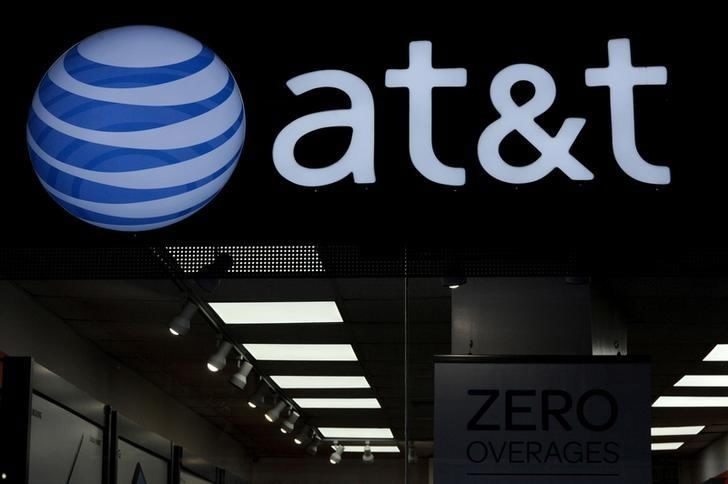
US broadband providers are promising to be on their best behavior./Reuters Photo
US broadband providers are promising to be on their best behavior./Reuters Photo
Some critics don’t put much weight on those promises, noting that many providers have previously used their networks to disadvantage rivals. For example, the Associated Press in 2007 found Comcast was blocking some file-sharing. AT&T blocked Skype and other internet calling services on its network on the iPhone until 2009.
But others suggest fear of a public uproar will help restrain egregious practices such as blocking and throttling. "I’m not sure there’s any benefit to them doing that," said Gigi Sohn, a former adviser to Tom Wheeler, the Obama-era FCC chairman who enacted the net neutrality rules now being overturned.
"It’s just going to get people angry at them for no good reason. They don’t monetize that."
Source(s): AP

SITEMAP
Copyright © 2018 CGTN. Beijing ICP prepared NO.16065310-3
Copyright © 2018 CGTN. Beijing ICP prepared NO.16065310-3